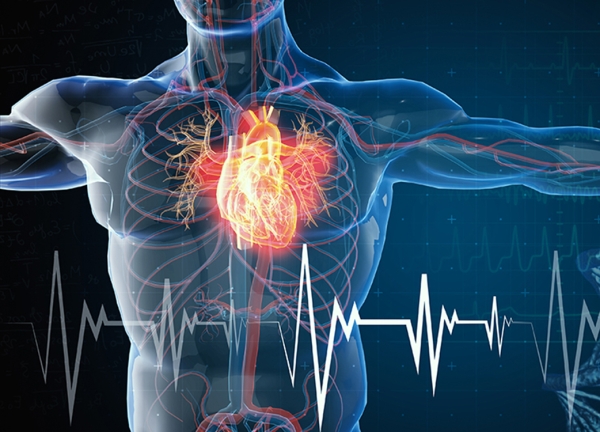10 benefits of choosing Cardiology Jupiter for cardiovascular well-being
10 benefits of choosing Cardiology Jupiter for cardiovascular well-being
Blog Article
Recognizing the Significance of Cardiology in Modern Medical Care Services
Cardiology plays a vital duty in contemporary medical care, especially as heart problem remains to be the leading source of death worldwide. Advances in diagnostics and treatment have transformed client care, making it possible for earlier interventions and enhanced results. The change in the direction of preventive cardiology equips individuals to manage their health and wellness proactively. As innovation proceeds to progress, the combination of ingenious solutions might even more redefine cardiology's effect on public wellness, triggering a better assessment of arising patterns and their effects.
The Frequency of Heart Problem and Its Effect On Public Wellness
Although cardiovascular disease stays the leading cause of death globally, its impact prolongs much beyond individual clients to affect public health systems and economic situations. The high prevalence of cardiovascular disease puts a considerable stress on medical care sources, demanding increased funding for avoidance, recovery, and treatment programs. Public health and wellness efforts should address threat aspects such as weight problems, smoking, and less active lifestyles, which add considerably to the rising occurrence of heart conditions.Moreover, the economic concern associated with heart problem is immense, including not only straight medical prices yet additionally indirect expenditures associated with shed efficiency and early mortality. Neighborhoods deal with obstacles in handling these costs, often resulting in variations in medical care gain access to and end results. As the population ages and lifestyle-related threats proceed to intensify, the urgency for effective cardiology interventions comes to be critical. Subsequently, addressing cardiovascular disease is not just a matter of specific health and wellness yet likewise a vital public wellness concern.
Developments in Heart Diagnostics and Imaging Techniques
Current developments in heart diagnostics and imaging methods have revolutionized the area of cardiology, improving the capacity to discover and monitor heart problem. Strategies such as heart MRI, CT angiography, and echocardiography have ended up being significantly innovative, offering thorough pictures of cardiac structures and features. These techniques enable the early recognition of conditions like coronary artery condition, cardiac arrest, and valvular disorders.Moreover, innovations in non-invasive diagnostics, such as wearable innovation and remote surveillance gadgets, have equipped patients and healthcare carriers. These tools help with real-time tracking of heart rhythms and various other essential signs, resulting in prompt treatments. In addition, expert system is being incorporated into imaging analysis, improving accuracy and efficiency in diagnosis.
Advancements in Therapy Options for Heart Issues
Current developments in cardiology have led to substantial developments in treatment options for heart disease. These consist of sophisticated medical techniques that enhance procedural results and emerging medications that use brand-new opportunities for therapy. As the field develops, these technologies play a crucial function in boosting patient care and results.
Advanced Surgical Techniques
Advancements in medical methods have actually transformed the landscape of cardiology, supplying new wish for clients with heart problems. Minimally invasive procedures, such as catheter-based treatments, have actually substantially minimized recovery times and health center stays. Techniques like robotic-assisted surgical procedure enhance accuracy, allowing cosmetic surgeons to navigate complicated physiological structures with greater accuracy. In addition, improvements in imaging technology promote real-time visualization during procedures, boosting results. Transcatheter aortic shutoff substitute (TAVR) exhibits an innovation in dealing with aortic constriction, making it possible for shutoff replacement without open-heart surgical treatment. Additionally, hybrid approaches that integrate medical and catheter-based approaches give customized remedies for different heart issues. These innovative surgical strategies not only enhance individual safety and security yet additionally broaden therapy choices, emphasizing the vital duty of innovation in modern-day cardiology techniques.
Emerging Treatments and drugs
As the landscape of cardiology remains to evolve, arising therapies and drugs play an essential function in enhancing therapy choices for heart disease. Technologies such as unique anticoagulants and progressed lipid-lowering agents have actually changed the management of heart diseases, substantially reducing individual morbidity and death. Furthermore, the advancement of genetics treatments and regenerative medicine supplies appealing avenues for dealing with conditions formerly considered irreparable. Scientific trials are continuously revealing the efficiency of these treatments, pressing the boundaries of typical therapies. Furthermore, the integration of digital health and wellness technologies promotes individualized medicine, enabling customized therapy plans based on hereditary and lifestyle elements. Collectively, these improvements emphasize the vibrant nature of cardiology, enhancing person outcomes and redefining criteria of care in modern health care.
The Function of Preventive Cardiology in Individual Treatment
Preventive cardiology plays an essential duty in patient care by concentrating on the recognition of threat factors that add to cardiovascular disease. With lifestyle alteration approaches and early detection methods, healthcare providers can successfully minimize the incidence of cardiovascular events - Cardiology care. This positive method not just enhances client end results but likewise promotes long-lasting health and wellness
Danger Factor Identification
While heart diseases continue to be a leading source of morbidity and mortality worldwide, efficient risk element recognition acts as a foundation of preventive cardiology. Identifying threat aspects such as hypertension, diabetes mellitus, household, and hyperlipidemia background is necessary for early treatment. Health care experts utilize different evaluating approaches to examine these variables, enabling tailored preventative steps. Additionally, comprehending an individual's lifestyle selections, such as smoking and physical lack of exercise, better informs danger evaluations. This comprehensive examination allows clinicians to develop individualized treatment strategies focused on mitigating risks. By prioritizing threat aspect identification, healthcare systems can boost individual results and lower the general burden of heart diseases, ultimately adding to improved public health and wellness strategies and source Read Full Report allocation.
Way Of Living Modification Strategies
A plethora of studies highlights the important role of way of life adjustment approaches in decreasing cardiovascular illness threat. These techniques encompass dietary modifications, increased exercise, cigarette smoking cessation, and weight monitoring. By taking on a heart-healthy diet plan rich in fruits, vegetables, whole grains, and lean proteins, individuals can reduce cholesterol levels and blood pressure. Routine physical activity reinforces the heart and enhances overall cardiovascular health. Additionally, giving up cigarette smoking greatly minimizes the risk of heart problem and boosts healing prices for those with present conditions. Weight management even more adds to cardiovascular health and wellness by reducing other danger aspects such as diabetes mellitus and high blood pressure. Implementing these way of life alters not just promotes individual wellness however likewise functions as a foundation of precautionary cardiology in patient care.
Early Detection Strategies
Way of living alterations significantly add to lowering cardiovascular disease dangers, but they are most efficient when coupled with early detection techniques. Preventative cardiology highlights the relevance of determining possible heart problems before they intensify right into serious problems. Strategies such as blood stress surveillance, cholesterol screening, and progressed imaging technologies like echocardiograms play important duties in assessing cardiovascular wellness. Biomarkers and genetic testing likewise improve the precision of early detection, enabling for tailored precautionary approaches. Routine heart danger examinations equip healthcare providers to intervene proactively, potentially stopping cardiovascular disease and strokes (Cardiologist near me). By incorporating these early detection approaches right into regular care, individuals can take advantage of prompt lifestyle interventions and targeted treatments, eventually improving and boosting end results quality of life
Integrating Innovation Into Cardiology Practices
As improvements in modern technology remain to improve different areas, the integration of cutting-edge devices and systems right into cardiology practices has ended up being vital for boosting client care and results. Telemedicine systems allow cardiologists to monitor individuals from another location, improving access to care while reducing the problem on medical care facilities. Wearable gadgets, such as smartwatches, allow constant heart rate tracking, notifying both physicians and people to possible problems in real-time. Additionally, expert system (AI) is being made use of to evaluate substantial quantities of cardiac data, assisting in very early diagnosis and personalized therapy strategies. Advanced imaging methods, including 3D echocardiography, boost visualization of heart frameworks, bring about a lot more accurate treatments. Digital health documents (EHRs) improve individual information monitoring, guaranteeing that cardiologists have prompt accessibility to important information. Together, these technological improvements are changing cardiology, promoting aggressive management and improved health and wellness end results for individuals with cardio conditions.
The Value of Client Education and Engagement
Client education and learning and engagement play an essential function in the management of cardio health and wellness. By equipping individuals with expertise concerning their conditions, therapy options, and way of life changes, medical care carriers encourage individuals to take an active duty in their care. This positive strategy can result in improved adherence to prescribed medicines, dietary modifications, and exercise regimens, eventually decreasing the risk of complications.Engagement additionally fosters a solid patient-provider partnership, encouraging open interaction and trust. When individuals really feel notified and involved, they are more probable to voice concerns and ask inquiries, which can lead to better medical end results. Furthermore, educational resources, such as workshops or electronic systems, can enhance understanding and promote self-management methods. On the whole, prioritizing person education and involvement is important for improving cardio health, boosting lifestyle, and decreasing health care costs connected with cardio conditions.
Future Trends in Cardiology and Their Prospective Effect

Regularly Asked Concerns
What Way Of Living Modifications Can Reduce Cardiovascular Disease Risk?
The existing concern addresses way of living changes that can greatly minimize heart illness risk. Cardiologist near me. Adopting a well balanced diet regimen, involving in regular exercise, preserving a healthy weight, taking care of tension, and preventing tobacco can notably boost cardio health and wellness
How Can I Recognize Early Indicators of Heart Problems?
Identifying very early signs of heart issues includes tracking signs and symptoms such as chest discomfort, shortness of breath, tiredness, and irregular heart beat. Timely awareness of these indicators can prompt needed clinical analysis and intervention for much better end results.
What Are the Distinctions Between Cardiologists and Heart Surgeons?
The differences between cardiologists and cardiac doctors exist in their duties; cardiologists mostly detect and manage heart disease via non-invasive techniques, while cardiac surgeons carry out procedures to fix architectural heart concerns. Each plays a vital, distinct duty.

Exactly how Usually Should I Get My Heart Health Checked?
The regularity of heart health and wellness checks varies based on specific threat elements. Generally, grownups need to undertake check this site out analyses each to two years, while those with status quo may require even more frequent analyses as advised by health care experts.
What Duty Does Genetics Play in Cardiovascular Disease Danger?
Genetics considerably affects heart problem danger, with familial patterns suggesting inherited problems. Details genetics can predispose people to hypertension, cholesterol issues, and other cardiovascular issues, highlighting the importance of genetic testing in examining heart health. Heart condition stays the leading reason of fatality internationally, its impact prolongs far beyond specific patients to impact public wellness systems and economic situations. Public wellness efforts need to resolve danger factors such as excessive weight, cigarette smoking, and inactive lifestyles, which contribute significantly to the rising occurrence of heart conditions.Moreover, the economic worry connected with heart disease is immense, encompassing not only straight medical costs yet also indirect expenditures associated to lost efficiency and premature mortality. Preventative cardiology plays a vital function in client treatment by concentrating on the recognition of danger variables that contribute to heart condition. Man-made intelligence (AI) and equipment discovering are boosting diagnostics and client monitoring, enabling early detection of heart diseases. The differences between cardiologists and heart cosmetic surgeons exist in their roles; cardiologists primarily identify and manage heart conditions through non-invasive methods, while cardiac surgeons do medical procedures to remedy architectural heart issues.
Report this page